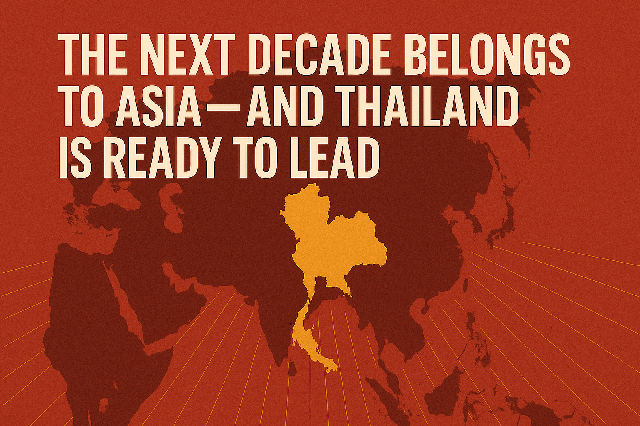In today’s fast-paced and highly competitive business landscape, effective leadership has never been more critical. Leaders are tasked with navigating complex challenges, driving innovation, and inspiring their teams to achieve success. However, even the most accomplished leaders can benefit from guidance and development. That’s where leadership and executive coaching come into play. In this comprehensive guide, we’ll explore the world of leadership and executive coaching, understanding what it entails, its benefits, and how it can empower individuals and organisations to reach their full potential.
Defining Leadership and Executive Coaching
Leadership coaching and executive coaching are specialised forms of professional development that focus on enhancing leadership skills and capabilities. These coaching processes involve a one-on-one, collaborative relationship between a trained coach and a leader or executive. The goal is to help leaders identify their strengths, address weaknesses, and cultivate the skills necessary to excel in their roles.
Key Components of Leadership and Executive Coaching
- Self-awareness: Coaching begins with self-awareness, where leaders gain insights into their strengths, weaknesses, values, and behaviours. Understanding oneself is the foundation for personal and professional growth.
- Goal Setting: Coaches work with leaders to establish clear, achievable goals. These goals align with the organisation’s strategic objectives and the leader’s vision for their team or department.
- Action Planning: Together with the coach, leaders develop action plans outlining the steps they need to take to achieve their goals. These plans are specific, measurable, and time-bound.
- Feedback and Accountability: Coaches provide valuable feedback and hold leaders accountable for their progress. This feedback loop helps leaders refine their strategies and stay on track.
- Skill Building: Coaching often involves skill-building exercises and techniques to enhance leadership competencies such as communication, emotional intelligence, conflict resolution, and decision-making.
- Reflection and Insight: Through reflective exercises and discussions, leaders gain deeper insights into their leadership style and how it impacts their team’s dynamics and performance.
Benefits of Leadership and Executive Coaching
- Enhanced Leadership Skills: Coaching helps leaders develop and refine essential leadership skills, empowering them to lead with confidence and effectiveness.
- Improved Decision-Making: Leaders gain clarity in their decision-making processes, allowing them to make informed choices that benefit the organisation and its stakeholders.
- Enhanced Communication: Effective communication is a cornerstone of leadership. Coaching helps leaders become more skilled communicators, fostering better relationships with their teams and stakeholders.
- Increased Self-awareness: Leaders develop a deeper understanding of their strengths, weaknesses, and blind spots. This self-awareness drives personal and professional growth.
- Conflict Resolution: Coaching equips leaders with the tools and strategies to handle conflicts constructively, fostering a more harmonious and productive work environment.
- Increased Confidence: As leaders grow in their abilities, they gain confidence in their decision-making and leadership style, inspiring trust and respect from their teams.
- Higher Performance: Coaching often leads to improved individual and team performance, resulting in better business outcomes and organisational success.
- Strategic Thinking: Leaders become more adept at strategic thinking and long-term planning, aligning their actions with the organisation’s mission and goals.
Challenges and Considerations
While leadership and executive coaching offer numerous benefits, there are challenges and considerations to keep in mind:
- Time Commitment: Coaching requires a time commitment from both the leader and the coach. Leaders must be willing to invest time in self-reflection and coaching sessions.
- Cost: Quality coaching can be an investment, and organisations should weigh the costs against the potential benefits.
- Alignment: It’s essential to align coaching goals with the organisation’s strategic objectives to ensure that coaching efforts support overall business goals.
- Resistance: Some leaders may resist coaching, viewing it as a sign of weakness or inadequacy. Overcoming this resistance requires a supportive organisational culture that values personal development.
- Sustainability: Coaching should not be seen as a one-time intervention. To reap long-term benefits, leaders may require ongoing coaching and support.
Tailoring Coaching to Leadership Levels
Leadership and executive coaching can be customised to address the unique needs and challenges faced by leaders at different levels within an organisation:
- Frontline Leaders: Coaching for frontline leaders focuses on developing foundational leadership skills, such as communication, time management, and team building.
- Middle Managers: Middle managers often benefit from coaching that enhances their strategic thinking, decision-making, and conflict resolution abilities.
- Senior Executives: Executive coaching for senior leaders may include high-level leadership development, succession planning, and aligning leadership with organisational strategy.
Measuring the Impact of Coaching
Measuring the impact of leadership and executive coaching is crucial to assess its effectiveness and ROI. Several key performance indicators (KPIs) can be used to evaluate the impact of coaching:
- Leadership Competencies: Assess changes in leadership competencies and skills through self-assessment and 360-degree feedback.
- Employee Engagement: Monitor employee engagement and satisfaction levels to determine if coaching has positively influenced leadership behaviours.
- Performance Metrics: Evaluate changes in performance metrics, such as team productivity, employee retention, and customer satisfaction, to measure the impact of coaching.
- Succession Planning: Assess whether coaching has contributed to the development of a pipeline of talent for leadership positions within the organisation, indicating a positive impact on succession planning.
- Feedback and Evaluation: Regularly collect feedback from both coached leaders and their teams to gauge changes in leadership effectiveness and overall satisfaction.
- Goal Achievement: Measure the extent to which leaders have achieved the goals set during coaching, whether they relate to personal development, team performance, or strategic objectives.
- Organisational Impact: Examine the broader impact of coaching on the organisation, including financial results, market share, and overall competitiveness.
The Future of Leadership and Executive Coaching
As businesses continue to evolve and face new challenges, the demand for leadership and executive coaching is expected to grow. The future of coaching will likely involve the integration of technology, such as AI-driven coaching tools and virtual reality simulations. These innovations will provide leaders with new avenues for skill development and self-improvement.
Additionally, coaching will become increasingly personalised, tailored to the unique needs of individual leaders. Coaches may use data analytics and assessments to create highly customised coaching programs that address specific leadership gaps.
Furthermore, coaching will extend beyond the C-suite, reaching a broader range of employees at various levels. This democratisation of coaching can foster a culture of continuous learning and development throughout organisations.
In conclusion, leadership and executive coaching play a pivotal role in empowering leaders to reach their full potential and drive organisational success. The benefits of coaching include enhanced leadership skills, improved decision-making, better communication, and increased confidence. To make the most of coaching initiatives, organisations must align coaching goals with their strategic objectives and commit to measuring the impact of coaching on leadership development and overall performance. As coaching continues to evolve and adapt to changing business landscapes, it remains a powerful tool for unlocking leadership potential and achieving sustainable growth.








